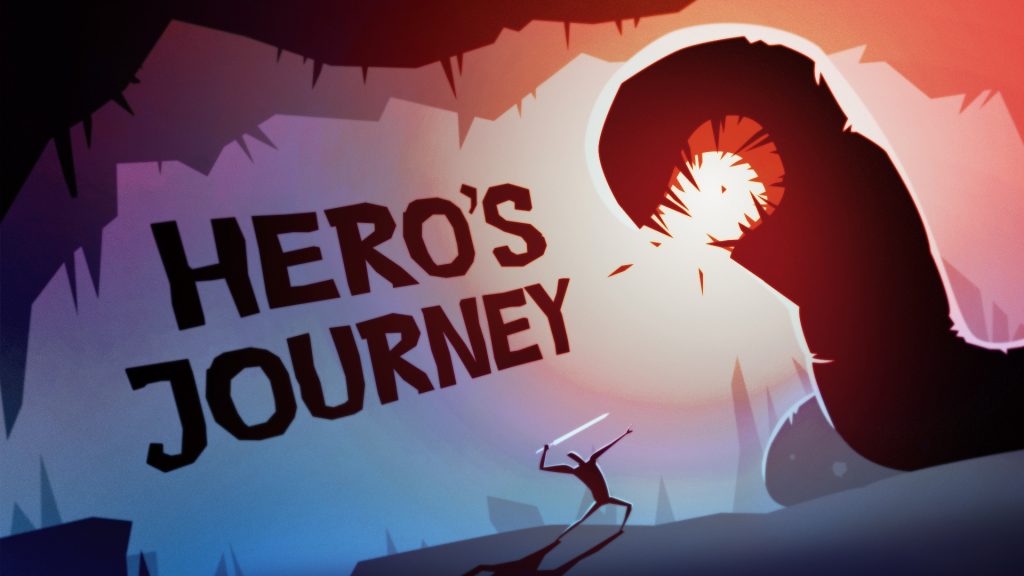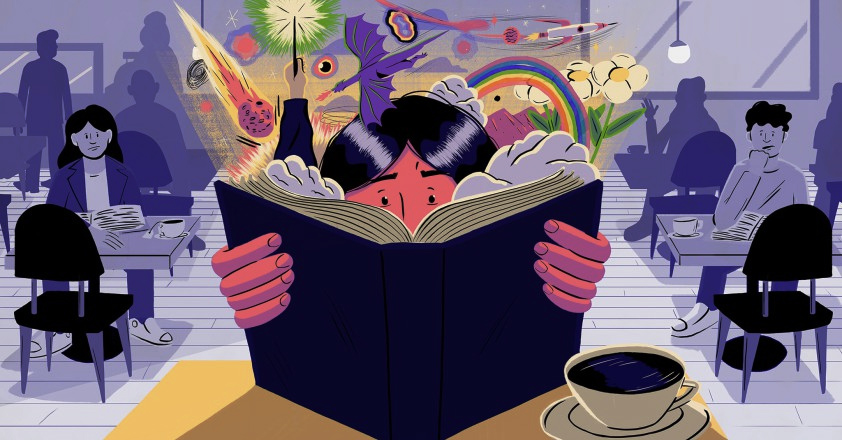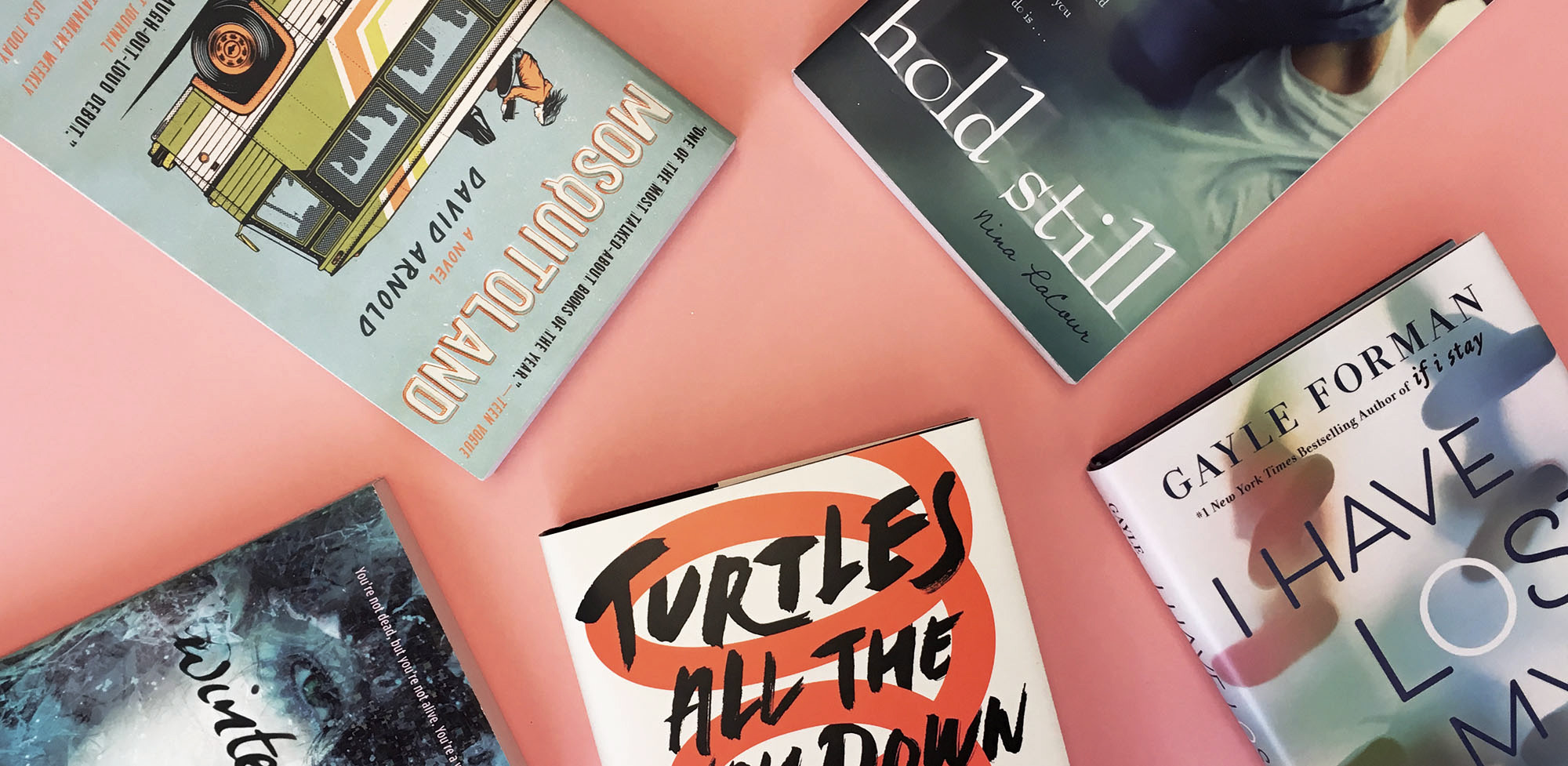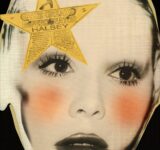No matter how old I am, my guilty pleasure will always be reading Young Adult books that either turn me into a rebel, or make my toes curl, filling me with utopian hopes of a happy ending. No regrets, my friend!
I am at the point of my life where people my age have started reading either philosophical “what does life even mean?” sort of books or self-help books. In the realm of madness that is twenties, I am still holding onto dragon-slaying-wizards and high school epiphanies.
Truthfully, I would lean into any and everything that interests me, regardless of what fits the mass audiences. However, the fickle human mind seeks validation as well; this constant tug of war is weighing on my reading choices, posing difficult questions!
What’s wrong with us?

Nielsen, a data provider for the book publishing industry, was able to present a figure based on its research in 2015 showing that 80% of all the Young Adult books are being bought by adults. Evidently, these books possess appealing traits that pull readers beyond their intended audiences. The versatility of these novels make them the “oh look at that!” books in a store that some (like me) cannot resist!
Does this mean we are suffering from a case of immaturity or seeking refuge in hopeless dreams? Possibly, possibly not, but I don’t see why you shouldn’t grab a book that appeals to your reading appetite, and you’re sure you’ll enjoy. Books have a lot to do with plot and taste, rather than age.
Some Passive Psychology Lessons

Most young adult books are centered around a protagonist, who, throughout the duration of the book, go through a series of events that ensue character development. These are coming off age stories of teenagers, gradually stepping into the realms of adulthood. While it is true that the most prominent and drastic case of growth occurs in the young ages, it is also undeniable that growth is a constant phenomenon, whilst self-actualization is a myth fed by corporate goths.
Sometimes, reading about the struggles of young characters helps them come in terms with the difficulties they face and makes them reflect on the life they left behind. The emotions these stories convey are like an evergreen song: they traverse eras, but are eternally relatable.
YA isn’t a genre but an age group specification. Ranging from fairies, high school dramas to gore, psychological thrillers, the versatility is applaudable.
Parchment Vehicle: Fictional Lands are Obviously Better

Most young adult books are fiction or fantasy, and usually have an imaginary universe where the events take place. You only need to try out books like Harry Potter and Percy Jackson to comprehend the meaning of letting your imaginations run wild: there is hardly a fan who hasn’t fantasized about adventures in Mount Olympus, or receiving their Hogwarts letter!
Creativity is something that transcends age, so it’s only natural that adults will gravitate towards these fascinating books and escape into these fictitious universes of magic, adventure and freedom.
When Age is Just a Number

Here’s an unwarranted confession: people like reading about times when everything was a hundred times simpler. Especially adults working 9-to-5 in a dreadful corporation with colleagues who are even more miserable. Young adult novels are a way for them to reminisce the innocence of their past.
As someone who has stepped into the territory of adulthood, I can vouch for how indistinguishable you will remain from the self you were as a teenager. Other than the steady increase of responsibilities, adulthood doesn’t impose any particular preference on you. So, it shouldn’t be anything unusual if you still continue being a Potterhead well into your deathbed, passing on your precious merchandise to your grandchildren as an essence of your life.
Who cares about classification?

Good books are just good books regardless of what part of the shelves they occupy in the library. Due to the huge demand of the young adult books, competition has increased and the publication quality has skyrocketed.
I have tried a few young adult books written by unpopular authors in this year, like, “The inexplicable logic of my life” by Benjamin Allire Saenz, “We Are the Ants” by Shaun David Hutchinson and “The Lunar Chronicles” by Marissa Meyer. Although these have gone underrated, I cannot emphasise enough on how blown away I was by the sheer quality of their penmanship!
Passionate readers probably have their preferences, but they never settle their opinions of a specific genre as long as it quenches their thirst for reading. That being said, I would rather spend my cool, fall evenings reading about two people falling in love, or flying on the back of a dragon- curled up in my bed, cozily sipping my hot coco, than have another imperfect adult advise me on how to fix myself.






















